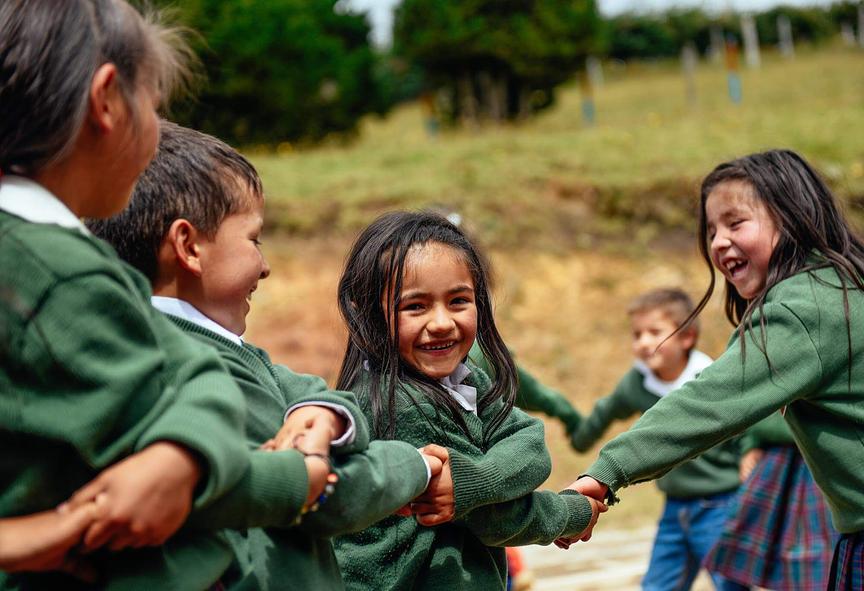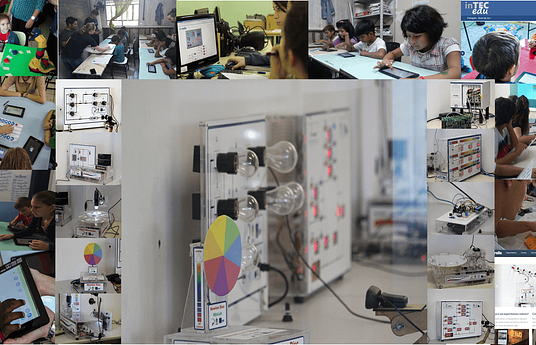Children have the right to basic education in most countries. Despite this, there are some areas where access is not guaranteed, particularly for children from more deprived backgrounds or isolated areas.
In rural areas of Colombia, ifchildren do have the opportunity to go to school, the quality of education may be lower than in more urban or wealthier areas. Many students attend multi-grade schools with a wide range of ages in a class. There has typically been an emphasis on lecture-like rote learning, with little relation to daily lifein rural areas. This inequality in education provision contributes to a continuous cycle of poverty and to wider social inequity.
Fundación Escuela Nueva was founded over 30 years ago to improve educational opportunities for the most vulnerable children in rural Colombia. What started as a grassroots project is now a large foundation influencing government policy inseveral developing countries. Their guiding philosophy is that education should be accessible, high-quality, and relevant to students.
Escuela Nueva teaching methodsincludesmall group working, dialogue, and cooperative learning. Children interact, collaborate, and learn with each other. Teachers do not stand in front of the classroom and lecture, but act as facilitators to guide discussions and support learnersas they work through their learning guide workbooks. Students are involved in every element of how the school operates. They make decisions about how and what they learn, promoting democratic values.
The learning guides are designed and adapted to ensure they are relevant and reflect the contexts in which students are living. There are activities for learning outside the classroom to enrich the curriculum and there is an emphasis on encouraging families to participate in education. The use of learning guides is flexible in order to meet the individual needs of the children who work through them at their own pace.
Ongoing teacher training is a core component of the Escuela Nueva model. Instead of a focus on theory and academic study, teachers are trained using the same methodologies as used in the classroom with the students. In this way, the strategies are modeled clearly to the teachers.
Such child-centered learning has been seen to improve academic achievement, reduce dropout rates and develop social ideals such as democracy and peace. In oneUNESCO study, Colombia was ranked second in the world for rural education provision. Some rural areas have even outperformed some urban schools. Successes in the rural communities have led to Escuela Nueva becoming the national policy for both rural and urban education in Colombia.
Fundación Escuela Nueva (FEN) is a non-governmental organization (NGO) founded by the creators of Escuela Nueva. FEN hasshared themodel across 40 countries and 12 countries have adapted and implemented the model through government policy reform and global partnerships.


